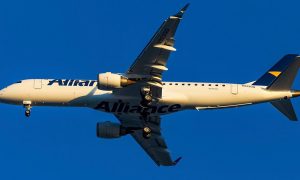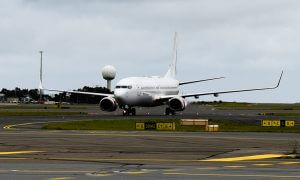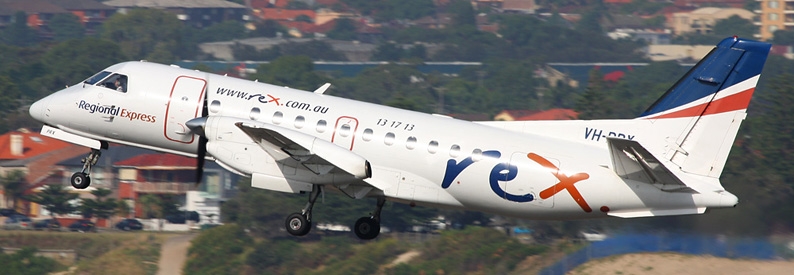Share Tweet Share Share Email Comments
Regional Express announced that it has raised an official complaint to the Australian Competition and Consumer Commission (ACCC), claiming that Qantas’ is dumping excessive capacity on routes that are already extremely marginal.
“The direct impact of this conduct is to force out the smaller competitor and substantially lessen competition in the long term,” the airline said in a statement.
Rex will be citing Qantas’ behavior in three regional routes that go beyond “competition on the merits”:
Adelaide to Whyalla
In 2015, Qantas decided to mount services on the Adelaide to Whyalla route. This route was serviced by Rex with annual passenger numbers of 60,000 and annual seats of 100,000, giving a Rex load factor of 60%. In April 2015, Qantas commenced services on the route by bringing in an additional 66,000 seats, thus bringing the total market load factor to 43% which makes the service uneconomical for both carriers.
Adelaide to Kangaroo Island
This route was serviced by Rex with annual passenger numbers of 37,000 and annual seats of 66,000, giving an annual Rex load factor of 57%. In December 2017 – the peak period for traffic on the Kangaroo Island route – Qantas commenced services by bringing in 6200 seats in the period of December 2017 to February 2018, bringing the total capacity during that period to 24,700 seats to service only 13,000 passengers. In addition, Qantas commenced direct services to Melbourne, further diluting the passengers traveling on Rex since they no longer need to travel to Adelaide to fly to Melbourne.
Sydney to Ballina
On January 17, 2020, Qantas announced that it would mount additional services on the Sydney to Ballina route with effect from March 29. The new service targets the only service that Rex operates between Sydney and Ballina (early morning departure from Ballina and late evening return from Sydney). This service currently has 10,000 annual passengers serviced by Rex with 18,000 annual seats. The addition of the 36,000 annual seats from QantasLink would mean the load factor would fall to 19%.
Regional Express says it is obvious that the excessive additional capacity introduced by Qantas on these routes kills the ability for Rex to offer a sustainable alternative to the Qantas model for regional communities and increases Qantas’ market power.
Rex has been a steadfast partner to Kangaroo Island, Ballina and other regional and remote communities for decades, providing reliable, safe and frequent air services with affordable fares. In fact, even though Rex is the sole operator across 80% of its vast regional network, Rex’s average fare has risen only 1.2% annually since Rex was formed in 2002.
However, Rex has to face up to the reality that it is not able to match Qantas’ financial firepower and unlike Qantas, Rex is not able to continue servicing a money-losing route indefinitely. The Rex Board has decided that in light of the sharp downturn experienced in the last six months and the poor economic outlook for the next 12 months, Rex will be exiting the Sydney to Ballina and Adelaide to Kangaroo Island routes in the coming weeks.
“This is not a decision that Rex has taken lightly having serviced Kangaroo Island continuously for 30 years and Ballina for 24 years, first as Kendell Airlines and then as Rex since 2002,” the statement added.
When asked by the Aviation Tribune, a Qantas spokesperson said:
“Rex has a track record for throwing tantrums when things aren’t going according to their plan. Not long ago, they blamed us for the fact their pilots were applying for jobs with Qantas. Now it’s because we’ve added services and given regional consumers more choice.
“We’re focused on adding new routes to regions that we think have genuine growth potential. That includes stimulating those towns with more capacity, which helps build momentum and can grow the size of the pie over time.
“Rex blaming our capacity commitments as a reason for exiting Kangaroo Island after the devastating bushfires is a sad state of affairs.
“We have a long history of serving regional Australia and we’ll continue to invest in communities where there’s a sustainable demand for our services.”
Related Items:Qantas, Regional Express Share Tweet Share Share EmailRecommended for you
-

 Qantas Targets Domestic Growth With Alliance Airlines Capacity Deal
Qantas Targets Domestic Growth With Alliance Airlines Capacity Deal -

 Qantas to Outsource Ground Handling Operations at 10 Airports Across Australia
Qantas to Outsource Ground Handling Operations at 10 Airports Across Australia -

 REX Takes Delivery of its First Boeing 737
REX Takes Delivery of its First Boeing 737
Click to comment
Leave a Reply
Your email address will not be published. Required fields are marked *
Comment
Email *
Website
Yes, add me to your mailing list

